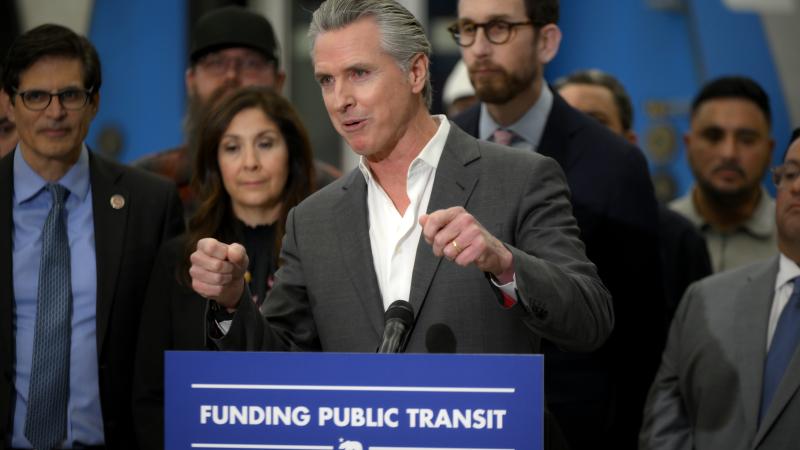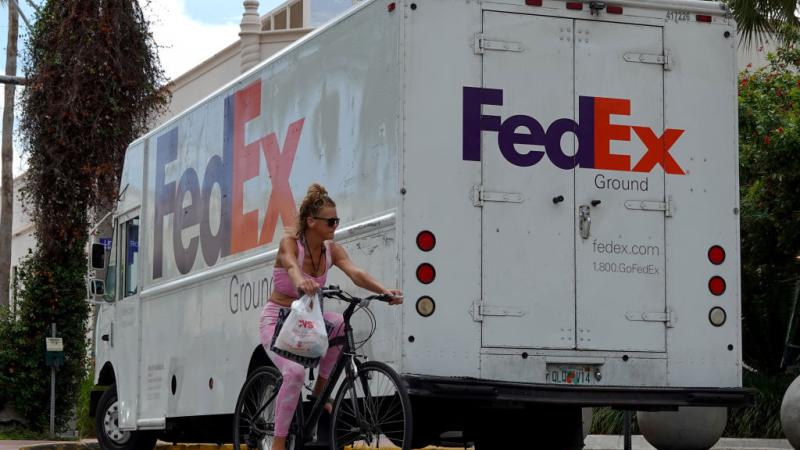Poll: Likely voters more concerned with economy, inflation and cost of energy than climate change
Republicans, on average, according to the poll, would spend $134 per year to address global warming, whereas Democrats were willing to spend $633 on average per year to address it.
While climate change gets a lot of attention from media and politicians, voters rank it fairly low on their concerns, according to a new survey.
The American Energy Alliance (AEA) and the Committee to Unleash Prosperity sponsored a survey of 1,600 likely voters equally divided among eight “battleground states” of Georgia, Pennsylvania, Wisconsin, Arizona, Nevada, Michigan, Missouri, and Ohio.
In order to be included in the list of concerns, at least 3% of respondents had to state, in the open question, that it was a concern of theirs.
According to the survey results, of those surveyed, only 3% say that climate change is the most pressing issue facing the United States right now, and less than 3% of Republicans polled said climate change is the most pressing issue.
The top issue for 39% of voters, including Republicans, is the economy and inflation, according to the survey. Of those polled, 49% of Republicans consider it to be the most pressing issue the country faces.
The survey also asked respondents how much they’d personally be willing to spend annually to address global warming. For all those surveyed, the median amount was $10, and the average was $371.
Polls often find that global warming is a top concern among those polled, such as a 2022 Pew Research poll that found 75% consider it a major threat, among a set list of concerns that included the spread of false online information and infectious diseases.
Tom Pyle, president of the AEA told Just The News that the AEA survey poses an open-ended question as to what voters believe is the most pressing issue. “That gives us a much more accurate picture of what's on a voters’ mind when a lot of times surveys give you sort of a predetermined list of issues,” Pyle said.
He said when surveys ask these more open-ended questions, they also show climate change isn’t a top concern for those polled.
The AEA has been doing the survey for about a dozen years, he said, and there hasn’t been much change with regard to voters’ attitudes towards energy and climate with this year’s poll. The AEA and Committee to Unleash Prosperity focused on battleground states, Pyle said, because they’re the ones that affect the outcome of elections more.
The poll asked likely voters what is the second most important issue facing the nation today, and 23% of Republicans said the economy and inflation, whereas 20% of all polled said it was. “It’s designed to keep our finger on the pulse of what likely voters are thinking and feeling about energy issues,” Pyle said.
Climate change didn’t rank as the second most important issue for 3% or more of those polled.
Of all those polled, 10% said immigration is the most pressing issue, including 18% of Republicans. Immigration was the second most pressing issue for 12% of those polled, including 20% of Republicans.
Health care, the budget, and President Biden were also ranked as the most pressing issues among those polled.
Republicans, on average, according to the poll, would spend $134 per year to address global warming, whereas Democrats were willing to spend $633 on average per year to address it. More than half of Republicans polled wouldn’t be willing to spend anything to address it, and 17% were likewise opposed to spending any money on the issue.
The poll also found that 89% of Republicans agree that the federal government shouldn’t make energy more expensive, and 81% of Democrats said it shouldn’t. Republicans also overwhelmingly oppose raising taxes to fight climate change, with 90% disagreeing with the statement that we should raise taxes on energy to fight climate change. Just over half of Democrats polled think we should raise taxes to fight it.
The Democrats and Republicans polled were in agreement that we should avoid any actions that would increase inflation, with 90% of both agreeing with the statement.
Likely voters were also asked whether the federal government should focus on climate change or affordable energy right now, and 69% of Republicans said ensuring affordable energy should be the focus. For all those polled, only 44% believe it should be the focus.
For Republicans, 24% thought the federal government should focus on both addressing climate change and ensuring affordable energy. For all those polled, 14% think addressing climate change should be the focus, and 39% believed both should be the focus.
Only 4% of Republicans believe the federal government should focus on addressing climate change.
Likely voters were also asked about their thinking on carbon dioxide. For Democrats, 39% agreed with the statement “Carbon dioxide is a pollutant that damages the environment and compromises human health.”
Only 16% of Republicans agreed with the statement, and 73% of Republicans polled said they agreed that “Carbon dioxide is needed for plant life, and humans both exhale it and consume it every day.” Only 44% of Democrats agreed with this statement.
The poll also explored likely voters’ attitudes toward carbon import taxes. These are taxes on imports from high-emissions countries like China based on the amount of energy it takes to make those goods.
“Others oppose these taxes because the price will ultimately be paid by American families and workers in the form of higher prices,” the poll explained to the respondents.
Among Democrats, 40% opposed the taxes, 36% supported them, and 24% didn’t know or didn’t respond. Among Republicans, 63% opposed the taxes, 24% supported them, and 14% didn’t know or didn’t respond. The figures add up to 101% due to rounding.
For Republicans, 63% think that families and workers will bear the costs of a carbon dioxide tax on imports, and 22% think businesses will. For all those polled, 52% believe families and workers will bear the costs, and 31% believe businesses will.
The survey also asked likely voters if they think there are better ways to address climate change than imposing energy taxes on workers and families, and 83% of Republicans said there are. Of all those polled, 81% believe there are.
The total sample margin of error is 2.45%.















